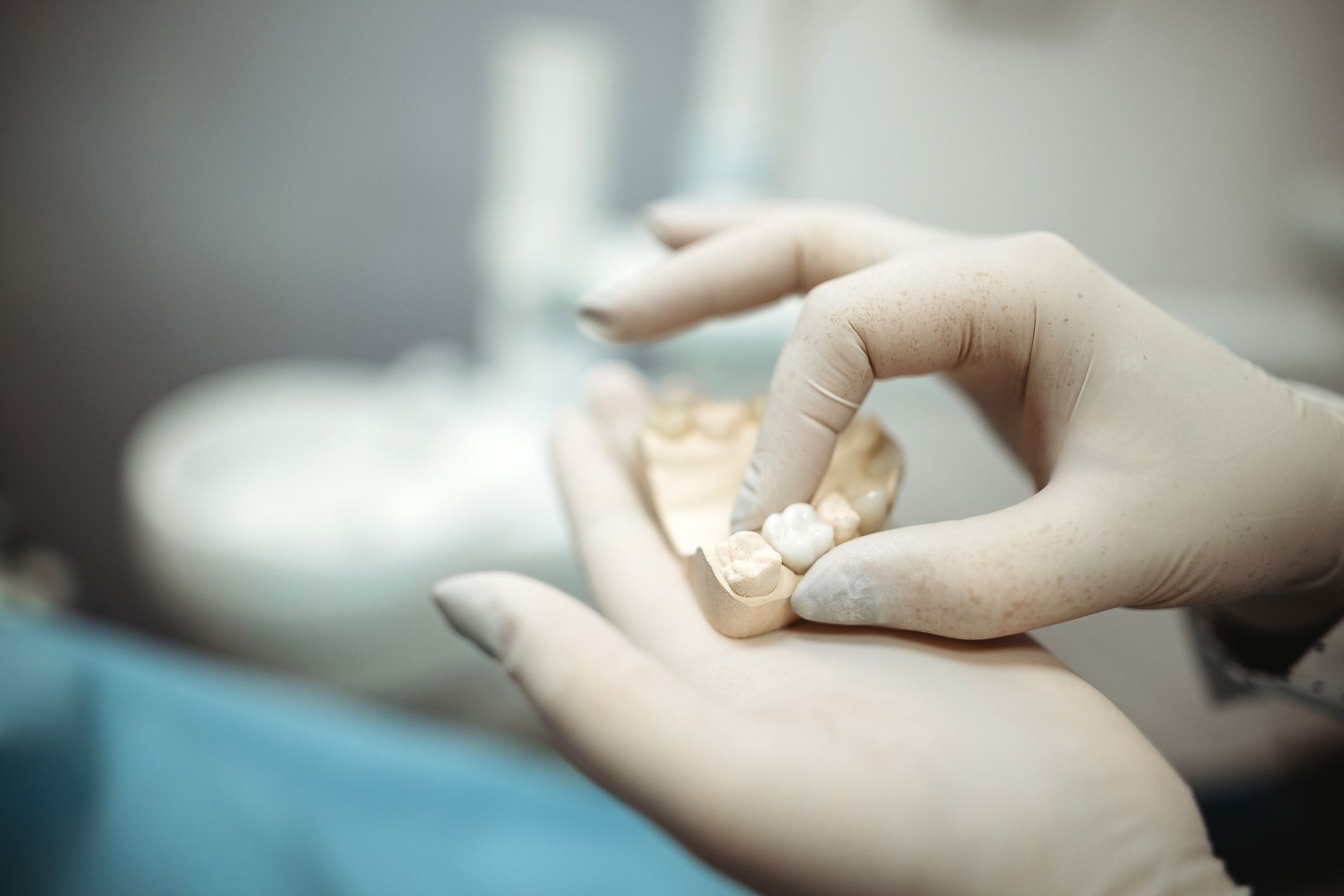
Your smile is the first thing people notice, so it’s understandable if you want to improve it in some way. From Invisalign and composite white fillings to tooth implants, there are many dental services available that can improve the health and aesthetics of your smile and give you more confidence. Missing or damaged teeth can be replaced using tooth implants which are an excellent replacement, it is almost impossible to tell it’s not your real teeth.
If you have been considering dental implants and would like to discuss private dental implants with your dentist, we’ve created this guide to help you learn everything you need to know about the process.
Dental implants are an appliance that is created to look exactly like real teeth. You can get different types of dental implants but the most common type is made from titanium due to the material’s long-lasting performance and durability.
The dental implant will be attached to your jaw in a similar way that natural teeth are attached to the root under the gumline. The implant will eventually fuse to your jaw, making it feel more natural than any other type of dental replacement.
Your dentist will assess you over time and discuss your suitability for dental implants. They will take into consideration any factors that may impact the procedure and how they will best deal with this. This helps to ensure a smooth and pain-free process.
Once you have been assessed by your dentist, they will take x-rays of your teeth. These imaging tests provide the blueprint for your dentist to map out the specifics of your implants. The teeth implants are carefully designed to fit your gum and jaw and the crown is meticulously fashioned to create a natural and often upgraded look that matches the rest of your teeth.
You will either be put to sleep or given local anaesthetic for the procedure, depending on the amount of teeth implants you are getting. For one or two implants your dentist will use local anaesthetic whereas more than that you will probably be put to sleep.
During the procedure, the dentist will implant the titanium post underneath your gum line and into your jaw. It will then take some time to heal, so the oral surgeon might place a temporary denture for a short time just for aesthetic purposes. This healing process can take weeks or months as it is important to wait until the implant has fused to the jaw in a process called osseointegration.
Once this has been completed, you can return for the abutment. This part of the procedure works by using a screw to create an interface between the post and the actual crown. To place the abutment, the gum has to be opened again while the piece is screwed in place and the gums are closed around the newly installed abutment.
Next is to add the crown itself, where it will be screwed into the abutment to complete the procedure. Now the procedure is over, it will take a little time for the implant to feel natural in your mouth while the post continues to fuse with your jaw and stabilise the crown as you chew.
Dental implants are a great option for many people and can significantly improve your confidence and mouth health. Here are some of the benefits:
While most dental implants are similar in the way they are implanted, different materials can be used for the process.
Generally, the post itself is made from titanium. This is because it’s a lightweight material that offers maximum durability for long-term performance and is the preferred choice for most dental implants.
However, another option you may come across is ceramic implants. These are usually made as a single piece so require more precision for proper installation. If you are sensitive to metals, this might be the better option.
Crowns will be made from either ceramic, porcelain or metal if the implant is located in the back, out of sight. While crowns can be damaged, it isn’t too difficult to replace them.
Getting dental implants is no walk in the park. However, they are often considered to be worth the recovery time due to their durability and long-lasting features.
The procedure itself shouldn’t be painful, as you will either be placed under anaesthetic or local anaesthetic. However, the recovery can be somewhat uncomfortable due to the healing process of your bones and gums. It’s a good idea to speak to your dental surgeon to discuss pain relief. They should offer you over-the-counter pain medications to manage discomfort. The worst of the pain will be over within 3 to 5 days and then subside. After a week, most patients don’t feel much more than some slight tenderness.
A majority of the time it takes to get dental implants is waiting for the healing to be complete. Everyone can take a different amount of time to heal, so each patient’s time frame can be different. If you still require tooth removal, this might add some extra time to the waiting period as the gums and jaw bone will still need to heal after the tooth extraction.
After the initial dental implant surgery, your surgeon will need to wait another three to six months for the implant to fuse to the bone. If the crown and abutment are installed prematurely, it may cause pressure on the bone and implant, causing damage and potential injury.
At Riyo Dental, we offer quality private dental implants to help you regain confidence and restore your beautiful smile. If you’re looking for the best-priced dental implants in Manchester, we offer a free consultation, 0% interest-free finance options and stunning, natural and long-lasting results.
As one of the best-rated dentists in Stretford and with 150+ 5-star reviews, we pride ourselves on exceptional patient care from our expert and highly experienced team. To learn more, get in touch today.

Ask us anything – we’re open books and here to help!

We’re always listening – we’re not happy ‘til you’re happy!

Ready when you are – and with you all the way!





© Copyright 2025 Riyo Dental | Privacy Policy | Cookie Policy